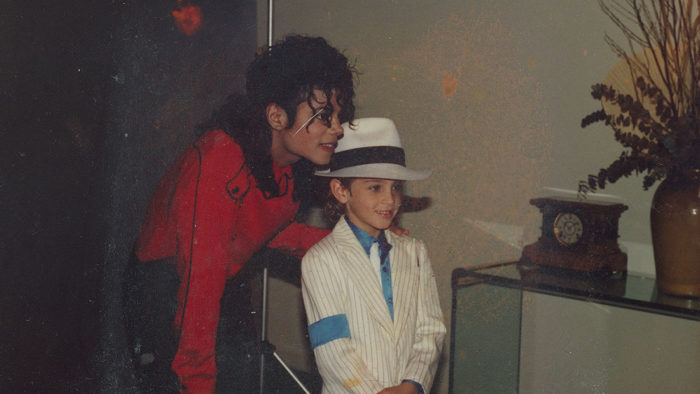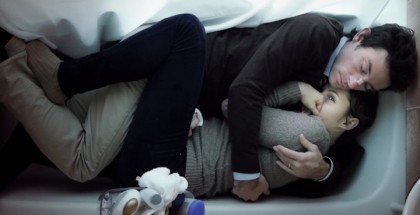UK TV review: Leaving Neverland
Review Overview
Participants
8Presentation
7Power
9David Farnor | On 06, Mar 2019
If you have been affected by any of the issues raised in this review or Leaving Neverland, or if you need assistance or support, you can visit The Survivor’s Trust, or National Domestic Violence Helpline.
To say that Leaving Neverland is not an easy watch is an understatement. The documentary, which premiered at Sundance earlier this year, gives a platform and voice to two men, James Safechuck and Wade Robson, who allege that Michael Jackson abused them when they were children. The film walks step by step through their relationships with Jackson, and disarmingly, disturbingly, diligently avoids skimming over any details.
Now in their 30s, the duo talk frankly about their experiences, describing the activities Jackson allegedly carried out, starting from when they were seven and 11. If that sounds like a potentially lurid or exploitative documentary, though, Leaving Neverland’s horrifying impact stems from the fact that it remains resolutely sombre and understated throughout.
Safechuck was cast in a Pepsi commercial alongside the singer, which led to them becoming friends. Robson, meanwhile, won a dance contest and went on to dance on-stage at gigs and tours with Jackson. Today, Robson is the choreographer of people such as NSYNC and Britney Spears. It is only now, though, that he – and Safechuck – are openly confronting their childhood trauma, an important part of the journey towards recovering and processing that the movie sensitively highlights. Director Dan Reed frames everything in relation to that emotional context: the lingering effects of the trust that he built up with them, so that he could allegedly take advantage of them as kids and silence them for decades after.
The film explores in depth the rush the boys felt at being brought into the same sphere as the pop superstar, from the glamour of the stage and screen to the more simple excitement of being invited over to watch films like Batteries Not Included in a private cinema before other people had seen it. Even years later, they talk of having feelings for him as adults. There’s a thorny complexity to their bond with him, one that sits in an uncomfortable limbo of complicity – they defended Jackson in court when he was accused of molesting another young teen – albeit complicity that a young child is in no place to make a decision about.
Their parents lament that they, too, were caught up in the whirlwind of Jackson’s celebrity – even as they were moved further and further away from Jackson’s bedroom when the group travelled with him. There’s a hideous enabling behind their account of events that’s only possible as a result of someone manipulating them with power, influence and status. “He took my son’s childhood away,” says one. “He took the man he could have been away.”
And yet, while it explores that wider issue of fame, Leaving Neverland doesn’t lose sight of the very specific story it’s documenting: Safechuck and Robson are always front and centre of the film, speaking to the camera almost like an eyewitness statement. Where another film might zoom out to cover Jackson’s musical career or social legacy, Leaving Neverland simply gives these two men a space to talk safely through their memories. The slowly paced three-hour runtime (the film aired in two parts on Channel 4) is testament to how much space Reed gives them to go into as much depth as they’re comfortable with – and the depth to their insights and observations is astonishing, alarming and often upsetting.
By staying so focused on their recounting of what they say happened, the result is a claustrophobic piece of filmmaking, one that leaves you both struggling to keep watching and unable to do anything else. The continuous, exhaustive litany of acts and accusations just keeps stacking up. Reed cuts from their testimony to overhead shots of California and Jackson’s Neverland estate, accompanied by graceful string music – then dives back beneath that picture-perfect surface to continue excavating what seems like a necessarily told tale.
Leaving Neverland is available on All 4. It is also available on BritBox, as part of a £5.99 monthly subscription.





















